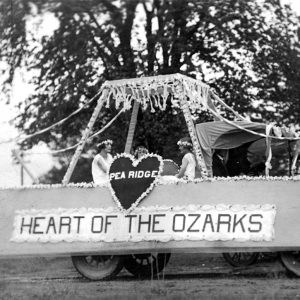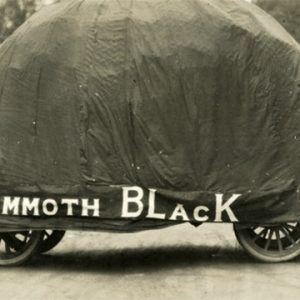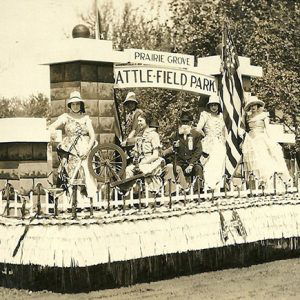calsfoundation@cals.org
Arkansas Apple Festival
The Arkansas Apple Festival in Lincoln (Washington County), held the first weekend of October, has been a feature of life in northwest Arkansas since 1976. The goal of the festival is to call attention to the value of the area’s apple crop and the history behind it. At one time, Arkansas’s largest apple orchard was outside Lincoln.
Established traditions at the festival include live music (generally bluegrass and country); square dancing; an arts and crafts fair; and a parade that includes local organizations, politicians and elected officials, antique automobiles and tractors, and local riding clubs. Extremely popular are the free samples of apple cider and apple slices given away throughout the festival. The Apple Festival features two beauty contests: the Miss Apple Blossom and Miss Apple Harvest contests. More than 70,000 people are estimated to have attended the festival in 2008.
The roots of Lincoln’s current Apple Festival reach back to the Apple Blossom Festival held in Rogers (Benton County) from 1923 to 1927. The main event was the parade of apple-themed floats, which area towns across Washington and Benton counties entered. Themed “There Is Wealth in the Apple,” Lincoln’s float won the competition in 1926. It featured a huge red-and-white apple, which was opened and closed by a boy operating a crank (J. F. Johnson) lying on his stomach hidden inside the float. Each time the apple opened, another small boy (Joe Simpleton) would throw money to the crowd along the parade route.
In mid-1975, a group of nine Lincoln area residents formed to create some kind of annual celebration to highlight the town of Lincoln and what it had to offer for visitors. Framing that celebration around the area’s apple industry was an obvious decision. Many believed the festival was an American Bicentennial project, but it was just a happy coincidence that the first Arkansas Apple festival was held in 1976.
Lincoln Area apple farmers have developed many unique varieties of apples. George Collins produced the Collins Red, and his son-in-law, Wellington (Writ) Waller, created the August Beauty, Summer Queen, and Summer Champion varieties. The Black Ben Davis apple appeared as a volunteer—that is, a chance seedling—on the John Reagan farm in the 1880s and was called the Reagan’s Red for a time until the other name took hold. Another apple developed in the Lincoln area was the Shannon apple, which won a medal at the St. Louis World’s Fair in 1903. Some sources ascribe the creation of the Arkansas Black to local farmer De Kalb Holt, though other sources link the apple to neighboring Benton County.
Country singer David Allen Coe performed at the first apple festival celebration. Part of the funds to bring him to Lincoln were raised by the sale of tickets to a “womanless” wedding in which all the roles were played by area businessmen and politicians. Governor Bill Clinton was on hand to crown the 1980 Apple Queen, Sandra Williams of Jacksonville (Pulaski County), and Governor Frank White proclaimed October to be “Arkansas Apple Month” in 1981, noting that the Apple Harvest Queen Pageant “promotes the finest characteristics of the state of Arkansas and enhances its image outside its borders.”
For additional information:
Arkansas Apple Festival. https://www.arkansasapplefestival.com/ (accessed February 25, 2026).
“Celebrating an Apple Heritage.” The Ozark Mountaineer 36 (October 1988): 48-49.
Payne, Ruth H., and Burlene Hilton. A History of the City of Lincoln. Lincoln, AR: Lincoln Leader, 1960.
Thomas E. Jordon
Lincoln, Arkansas










Mr. Frank Holt and his wife, Mrs. Violet Elizabeth Holt, founded the apple festival. They built their home in 1943 on 113 East Holt Rd.; it still stands. Mrs. Holt was founder of the first library in Lincoln and was the first librarian. Mr. Holt was the biggest and the main apple grower in Lincoln. I reside in their house today. My whole road in front of my house behind the elementary school was named after them. Theirs was the first house on this road.